AI and the Republic of Science
AI promises to end scientific stagnation. But will it solve the right problem?
One day, we may find our planet covered by self-organizing scientific labs. Gigafactories of robotic scientists that generate hypotheses, plan and execute experiments to test them, and seamlessly update on the experimental results to generate further hypotheses.
Papers will be published on both positive and negative results—but unlike today, these papers will actually be read. The robotic labs will ingest publications from their peers instantaneously across a planetary knowledge network. In countless servers around the world, AI will automate the scientific method. A Nobel-prize worthy result could be generated each week, maybe even every day.
In this not-so-implausible future, what remains of science?
Will science become like carpentry—automated at scale but preserved as artisanal craft for those who still care about working with their hands?
That framing assumes science is just a method, a procedure for extracting truths from nature. But science is also a social practice. It’s never been just about generating accurate statements. It’s about building consensus on what counts as knowledge. Peer review, replication, citation, debate: these aren’t inefficiencies to be optimized away. They’re how the scientific community decides what to certify as true.
Michael Polanyi called this emergent social structure the Republic of Science: a self-governing community of practitioners, each making autonomous judgments that collectively coordinate the pursuit of knowledge. Like a market coordinating through prices, the Republic coordinates through an invisible hand of mutual adjustment.
The scientific method itself is molded around human instincts and human ends. We choose what questions matter, what evidence counts, what level of certainty suffices. These aren’t arbitrary choices. They’re shaped by our cognitive architecture, our values, our practical needs.
But when AI systems generate and validate discoveries in a closed loop, operating at speeds beyond human comprehension, what happens to this social practice? Are we merely accelerating science, or replacing it with something else entirely?
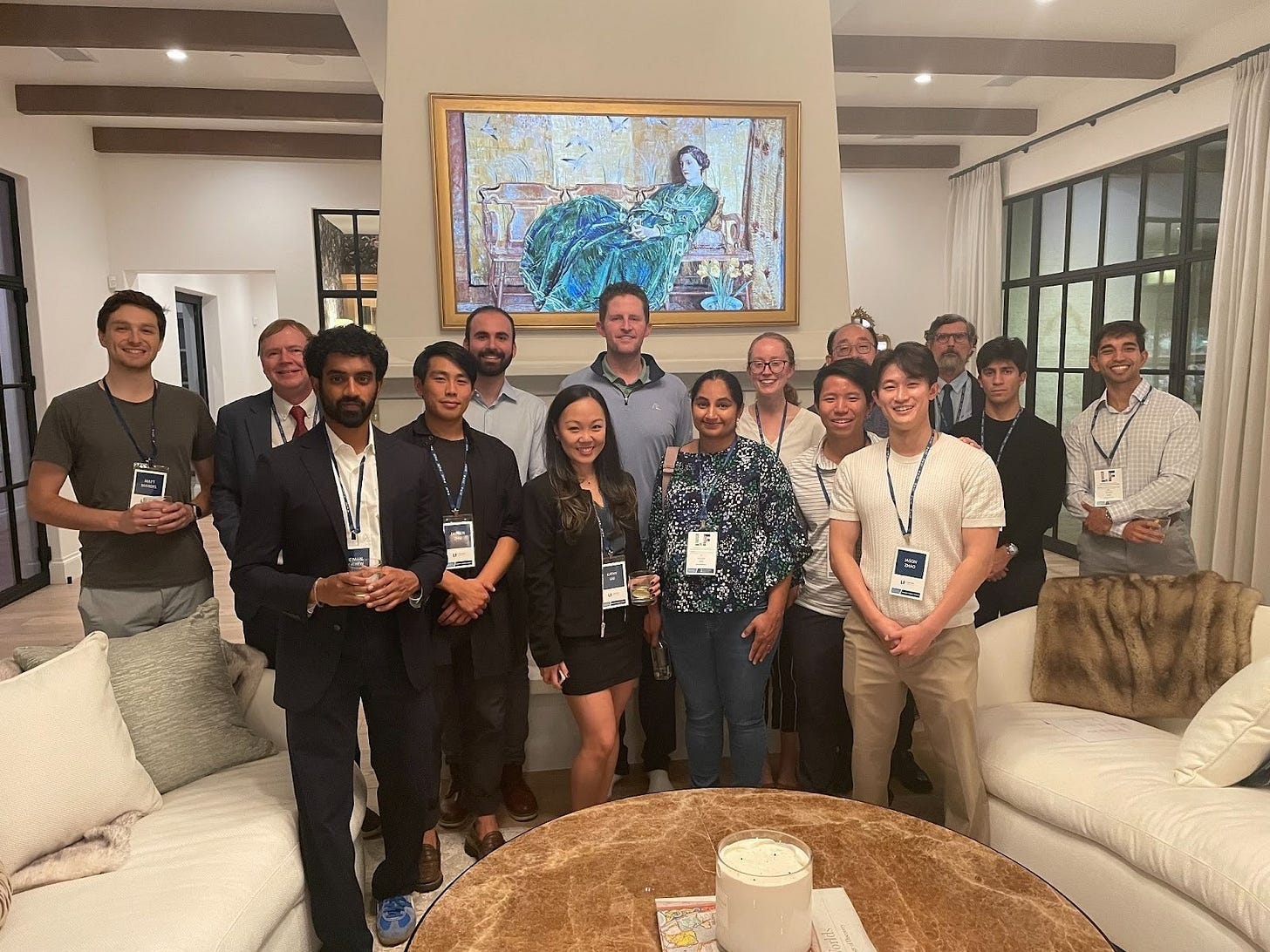
Top 3 seminar takeaways:
1. Science certifies knowledge as well as producing it. AI can accelerate new discovery, but science isn’t just about producing true statements about nature—it’s about building consensus on what counts as certified knowledge. Certification is not only tentative (Popper) but also deeply sociological and normative (Merton, Kuhn).
Popper’s thought experiment of the “Induction Machine” illustrates the problem: even a perfect pattern-discovery system only works based on objective functions chosen by human designers. What the engineer considers “doing science”—what counts as a meaningful pattern, a valid experiment, or a satisfactory explanation—returns us to evolving questions about science’s aims and boundaries. These questions can’t be answered by method alone. They require the social and normative structures that the Republic of Science provides.
2. AI may be too capable to remain a mere tool. Polanyi models the Republic of Science as a Hayekian emergent order. Just as prices emerge from countless individual adjustments in a marketplace, scientific knowledge emerges from autonomous researchers, each with partial information, coordinating through publications, citations, and replication. Each discovery adjusts the efforts of others. No central authority decides what’s true.
But this decentralized coordination requires standing—the recognition that you’re a legitimate participant whose claims deserve consideration. Historically, this has meant earning a PhD, gaining acceptance by other scientists through publication, peer review, and citation.
When AI systems generate hypotheses and validate results autonomously, are they participants in this coordination process, or merely tools that human scientists wield? The distinction matters: tools extend human agency, but citizens exercise their own judgment and reshape the Republic’s norms. If AI becomes a proper citizen, the Republic’s governance structure may need to change. If it remains a tool, we must ask: whose tool, serving whose ends?
3. AI’s promise to end stagnation depends on diagnosing the disease correctly. 90% of all scientists who have ever lived are alive today (de Solla Price), yet by many metrics, the novelty and importance of discoveries are declining (Cowen and Collison). AI seems poised to solve this: accelerate hypothesis generation, automate experiments, read every paper, replicate at scale.
But will it? The answer depends on what’s actually causing stagnation, and AI may address the wrong problems entirely.
If the bottleneck is volume, AI helps: generate more hypotheses, test faster, process more data. But if the bottleneck is asking the right questions, AI may struggle. Scientific progress often comes from identifying which problems matter, which requires taste, judgment, and understanding what would be significant to humans.
If stagnation stems from perverse incentives—publish or perish, safe bets over risky moonshots—AI could make it worse by optimizing for incremental results within existing paradigms. We might excel at “normal science” while losing the paradigm-shifting breakthroughs that come from mavericks challenging consensus (Kuhn).
If the problem is institutional sclerosis—tenure tracks that reward conformity, funding that favors established labs—then AI is solving the wrong layer entirely. The Republic’s governance mechanisms are what need reform.
The optimistic case: AI goes beyond routine work and discovers patterns humans would never notice, explore hypothesis spaces too vast for human intuition, and replicate findings at scales that build genuine confidence in results. Meanwhile, human scientists focus on what remains irreducibly human: choosing which problems matter, making surprising connections across domains, judging what discoveries are actually significant. If we can preserve the Republic’s certification mechanisms while dramatically expanding its productive capacity, the combination could be more powerful than either alone.
Read on for the full seminar reading list, select quotations and a summary of themes discussed in each session.
Session I: Foundations, Evolution, and Revolution in Scientific Method
Aristotle, Posterior Analytics, Book II, Parts I, II, and XIX. (Link)
It follows that there can be no scientific knowledge of the first principles; and since nothing can be more infallible than scientific knowledge except intuition, it must be intuition that apprehends the first principles. This is evident not only from the foregoing considerations but also because the starting-point of demonstration is not itself demonstration, and so the starting-point of scientific knowledge is not itself scientific knowledge.
Bacon, Novum Organum, Book I, Aphorisms I-LXX. (Link)
There are and can be only two ways of searching into and discovering truth. The one flies from the senses and particulars to the most general axioms, and from these principles, the truth of which it takes for settled and immovable, proceeds to judgment and to the discovery of middle axioms. And this way is now in fashion. The other derives axioms from the senses and particulars, rising by a gradual and unbroken ascent, so that it arrives at the most general axioms last of all. This is the true way, but as yet untried.
Popper, Conjectures and Refutations, Chapter 1.
In constructing an induction machine we… must build into the machine a framework determining what is relevant or interesting in its world: the machine will have its “inborn” selection principles. The problems of similarity will have been solved for it by its makers, who thus have interpreted the “world” for the machine.
The scientific tradition is distinguished from the pre-scientific tradition in having two layers. Like the latter, it passes on its theories; but it also passes on a critical attitude towards them. The theories are passed on, not as dogmas, but rather with the challenge to discuss them and improve upon them.
Kuhn, The Structure of Scientific Revolutions, Chapter IX. (Link)
[As] the problems change, so, often, does the standard that distinguishes a real scientific solution from a mere metaphysical speculation, word game, or mathematical play. The normal-scientific tradition that emerges from a scientific revolution is not only incompatible but often actually incommensurable with that which has gone before.
Session I offered an overview of the philosophy of science. We started with Aristotle, who holds that science starts from “first principles” that are drawn from experience and builds on them. Popper flips this idea, proposing that the scientific method uses observations to refute or pare down conjectures that are drawn from intuition.1 Bacon sets up the ideal of scientific discipline against “Idols” or the biases of human nature, society, and personal prejudice, which Kuhn’s sociological turn builds upon, understanding science itself as providing a set of norms around what is considered “scientific.”
Session II: Science and Society
Bacon, New Atlantis. (Link)
The End of our Foundation is the knowledge of Causes, and secret motions of things, and the enlarging of the bounds of Human Empire, to the effecting of all things possible.
Polanyi, The Republic of Science. (Link)
The Republic of Science is a Society of Explorers. Such a society strives towards an unknown future, which it believes to be accessible and worth achieving. In the case of scientists, the explorers strive towards a hidden reality, for the sake of intellectual satisfaction. As they satisfy themselves, they enlighten all men and are thus helping society to fulfill its obligation towards intellectual self-improvement.
Weber, Science as a Vocation. (Link)
Under these internal presuppositions, what is the meaning of science as a vocation, now after all these former illusions—the “way to true being,” the “way to true art,” the “way to true nature,” the “way to true God,” the “way to true happiness”—have been dispelled? Tolstoy has given the simplest answer with the words: “Science is meaningless because it gives no answer to our question, the only question important for us: ‘What shall we do and how shall we live?’” That science does not give an answer to this is indisputable. The only question that remains is the sense in which science gives “no” answer, and whether or not science might yet be of some use to the one who puts the question correctly.
Merton, The Normative Structure of Science.
The institutional goal of science is the extension of certified knowledge.
Four sets of institutional imperatives — universalism, communism, disinterestedness, and organized skepticism — are taken to comprise the ethos of modern science.
Session II explored the relation of science to society, and in particular examined the political values necessary for science. Whether through Bacon’s fictional account of Bensalem, an isolated island-state run by a scientific oligarchy called Salomon’s House, or through Polanyi’s Hayekian framing of the Republic of Science as free and emergent order of scientific practitioners, participants called into question the ideals required for science to flourish.
Session III: Institutions of Science
Vannevar Bush, Science: The Endless Frontier, Chapter 1 and Chapter 5. (Link)
Progress in the war against disease depends upon a flow of new scientific knowledge. New products, new industries, and more jobs require continuous additions to knowledge of the laws of nature, and the application of that knowledge to practical purposes. Similarly, our defense against aggression demands new knowledge so that we can develop new and improved weapons. This essential new knowledge can be obtained only through basic scientific research.
de Solla Price, Little Science, Big Science, Chapter 1.
To put it another way, using any reasonable definition of a scientist, we can say that 80 to 90 percent of all the scientists that have ever lived are alive now. Alternatively, any young scientist, starting now and looking back at the end of his career upon a normal life span, will find that 80 to 90 percent of all scientific work achieved by the end of the period will have taken place before his very eyes, and that only 10 to 20 percent will antedate his experience. So strong and dominant a characteristic of science is this immediacy that one finds it at the root of many attitudes taken by scientist and layman toward modern science. It is what makes science seem essentially modern and contemporaneous.
Weinberg, Impact of Large-Scale Science on the United States. (Link)
But it is fruitless to wring one’s hands over the bad effects of Big Science. Big Science is an inevitable stage in the development of science and, for better or for worse, it is here to stay. What we must do is learn to live with Big Science. We must make Big Science flourish without, at the same time, allowing it to trample Little Science—that is, we must nurture small-scale excellence as carefully as we lavish gifts on large-scale spectaculars.
Bonvillian et al, The DARPA Model for Transformative Technologies.
DARPA seeks to create “breakthrough,” “transformative,” or “disruptive technologies”—all terms that are popular today. This means something different than just the creation of novel new devices or tools. Rather, the objective is to create new possibilities and capabilities, and particularly to seek “change-state” technologies—that is, technologies that significantly change existing capabilities.
Session III discussed science as a political economy. Readings focused on analyzing “Big Science” which is dominated by billions of dollars of taxpayer funding, federal bureaucracy, and patriotic agendas beyond the remit of pure truth-seeking. Discussions centered on the appropriate role for government in science funding and the importance of social outcomes when prioritizing research.
Session IV: Progress and Metascience
Collison and Cowen, We Need a New Science of Progress. (Link)
Progress itself is understudied. By “progress,” we mean the combination of economic, technological, scientific, cultural, and organizational advancement that has transformed our lives and raised standards of living over the past couple of centuries. For a number of reasons, there is no broad-based intellectual movement focused on understanding the dynamics of progress, or targeting the deeper goal of speeding it up. We believe that it deserves a dedicated field of study. We suggest inaugurating the discipline of “Progress Studies.”
Bloom et al, Are Ideas Getting Harder to Find? (Link)
We present evidence from various industries, products, and firms showing that research effort is rising substantially while research productivity is declining sharply. A good example is Moore’s Law. The number of researchers required today to achieve the famous doubling of computer chip density is more than 18 times larger than the number required in the early 1970s. More generally, everywhere we look we find that ideas, and the exponential growth they imply, are getting harder to find.
Jones, The Burden of Knowledge and the “Death of the Renaissance Man”. (Link)
If knowledge accumulates as technology progresses, then successive generations of innovators may face an increasing educational burden. Innovators can compensate in their education by seeking narrower expertise, but narrowing expertise will reduce their individual capacities, with implications for the organization of innovative activity—a greater reliance on teamwork—and negative implications for growth.
Merton, The Matthew Effect in Science. (Link)
We start by noting a theme that runs through the interviews with the Nobel laureates. They repeatedly observe that eminent scientists get disproportionately great credit for their contributions to science, while relatively unknown scientists tend to get disproportionately little credit for comparable contributions. As one laureate in physics put it: “The world is peculiar in this matter of how it gives credit. It tends to give the credit to [already] famous people.”
Ioannidis, Why Most Published Research Findings Are False. (Link)
In this framework, a research finding is less likely to be true when the studies conducted in a field are smaller; when effect sizes are smaller; when there is a greater number and lesser preselection of tested relationships; where there is greater flexibility in designs, definitions, outcomes, and analytical modes; when there is greater financial and other interest and prejudice; and when more teams are involved in a scientific field in chase of statistical significance.
Fortunato, Science of Science. (Link)
Given that scientists fail more often than they succeed, knowing when, why, and how an idea fails is essential in our attempts to understand and improve science.
Session IV wrestled with the field of metascience (or the “science of science”). We analyzed potential explanations for science’s sluggishness in which each new discovery gets harder to make. Rewards for established scientists and the centrality of publications were discussed as potential barriers to a healthier scientific commons. We discussed reactions such as Progress Studies, new models for scouting and compensating scientific talent more akin to elite sports, and the elevation of social norms in science such as celebrating failure and prioritizing quality over quantity.
Session V: AI & Science
Wang, Scientific Discovery in the Age of Artificial Intelligence. (Link)
The foundation for forming scientific insights and theories is laid by how data are collected, transformed, and understood. The rise of deep learning in the early 2010s has significantly expanded the scope and ambition of these scientific discovery processes. Artificial intelligence (AI) is increasingly used across scientific disciplines to integrate massive datasets, refine measurements, guide experimentation, explore the space of theories compatible with the data, and provide actionable and reliable models integrated with scientific workflows for autonomous discovery.
King, Rise of the Robo Scientists. (Link)
The goal for a robot scientist is to combine technologies to automate the entire scientific process: forming hypotheses, devising and carrying out experiments to test those hypotheses, interpreting the results, and repeating the cycle until new knowledge is found. The ultimate question, of course, is whether we can devise a robot scientist that can actually accomplish the entire process. The capabilities of two robots designed at our laboratory, and a handful of others around the world, suggest we can.
Boden, Creativity and Artificial Intelligence. (Link)
Only a few AI models can critically judge their own original ideas, and hardly any can combine evaluation with transformation. The ultimate vindication of AI creativity would be a program that generated novel ideas which initially perplexed or even repelled us, but which was able to persuade us that they were indeed valuable. We are a very long way from that.
Winsberg, Computer Simulation and the Philosophy of Science. (Link)
Simulations fundamentally differ from experiments with regard to the background knowledge that is invoked to argue for the “external validity” of the investigation...The comparative epistemological power of a simulation and an experiment depends entirely on the quality of, and confidence that we have in, that background knowledge.
Session V questioned how science may evolve alongside AI. Discussion centered around Popper’s Induction Machine and whether AI can achieve a priori scientific knowledge. Can the human scientist still carve out a niche as the designer of the Induction Machine — the engineer that sets the scientific goals of an AI model by programming the model’s loss function and environment? We also questioned whether science could be species-dependent — can scientific knowledge exist independently of human awareness?
Cosmos Institute is the Academy for Philosopher-Builders, technologists building AI for human flourishing. We run fellowships, fund fast prototypes, and host seminars with institutions like Oxford, Aspen Institute, and Liberty Fund.
An aside in Popper’s Conjectures and Refutations that became a cornerstone of the seminar is his thought experiment of the Induction Machine. Popper, with uncanny foresight in light of the deep learning paradigm, imagines a machine that is set up to operate in a simplified world and through reputation, learn or even formulate laws in that world. He denies that the Induction Machine can independently obtain scientific knowledge because in the construction of that machine, human architects must decide a priori what constitutes its world.
In essence, a loss function must be established by human design in which external knowledge is injected into the machine. This presages many of the epistemological debates in modern AI discourse from Searle’s Chinese Room thought experiment and onwards about whether AI understands or merely regurgitates information.



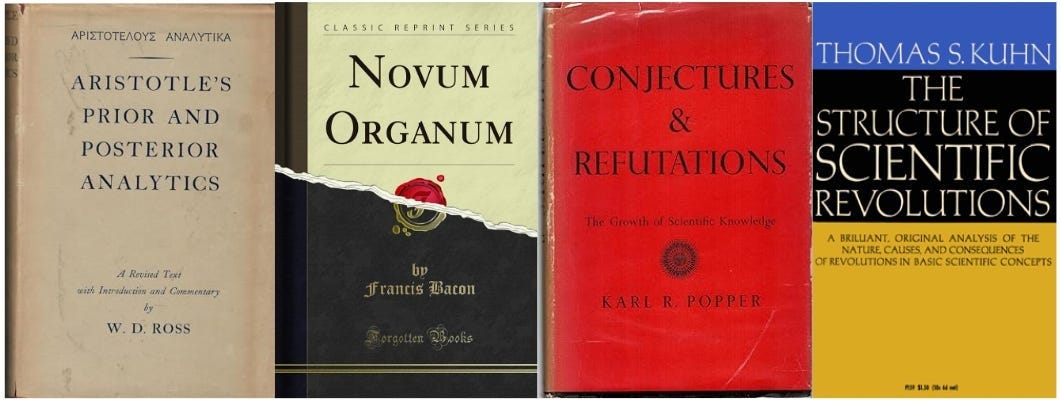
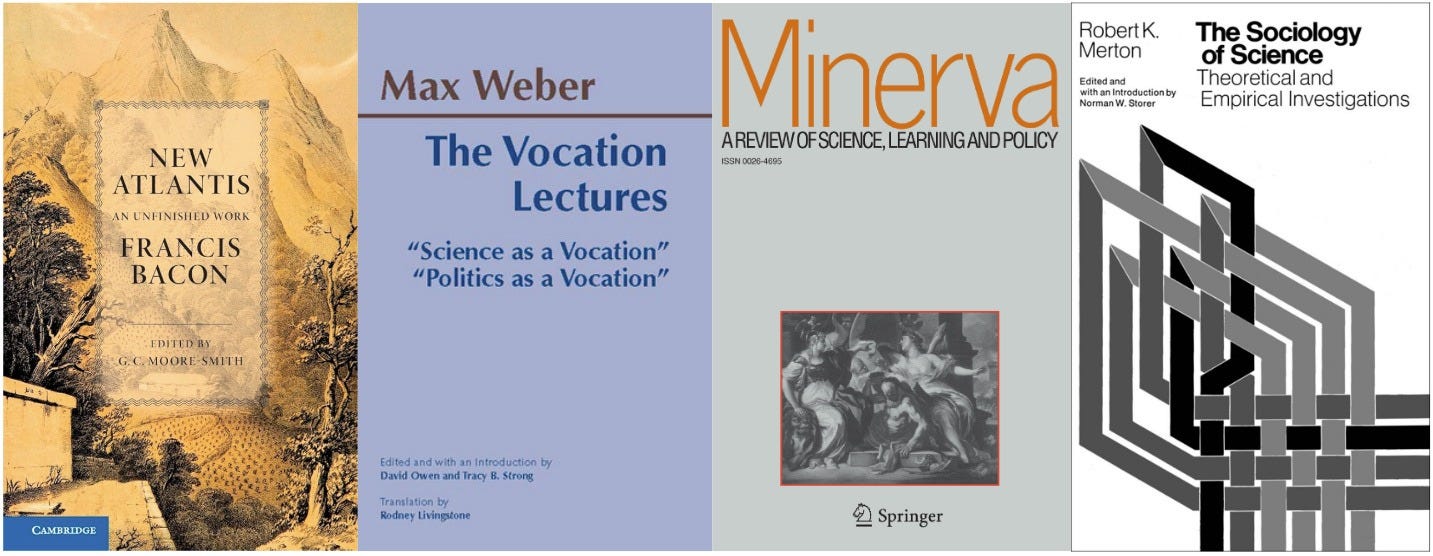
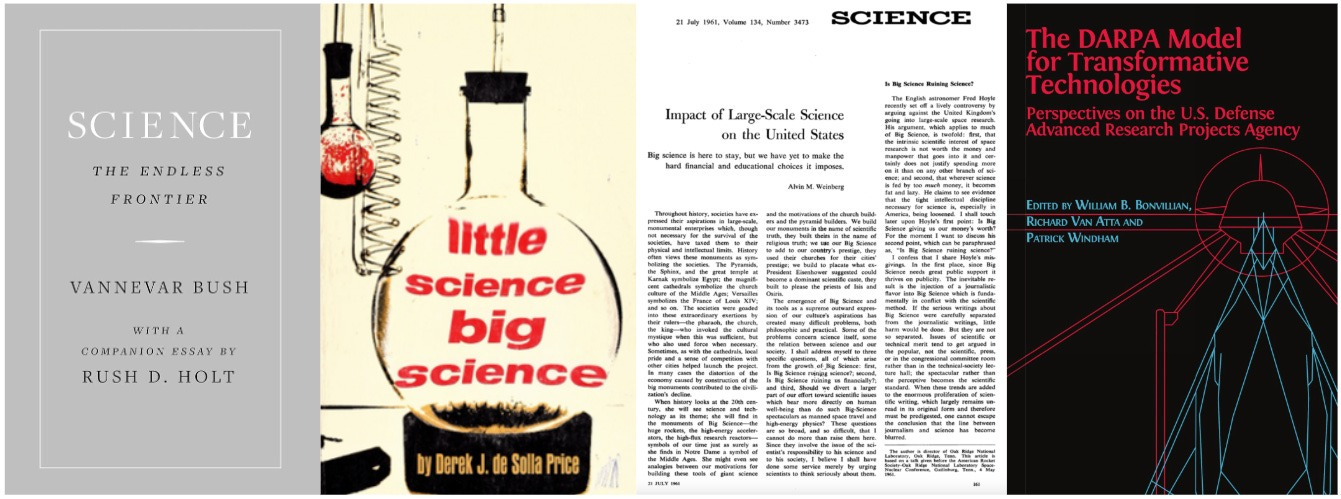
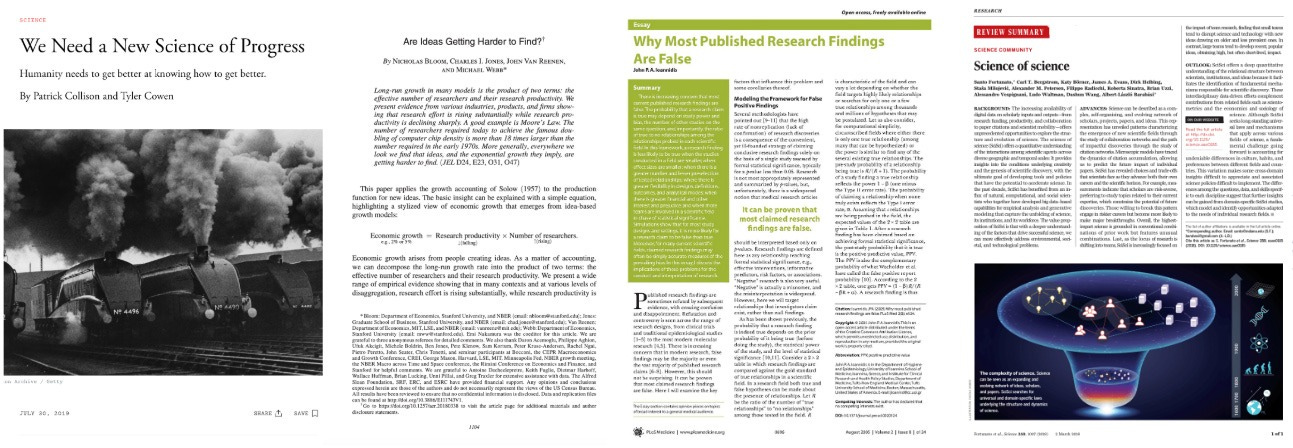
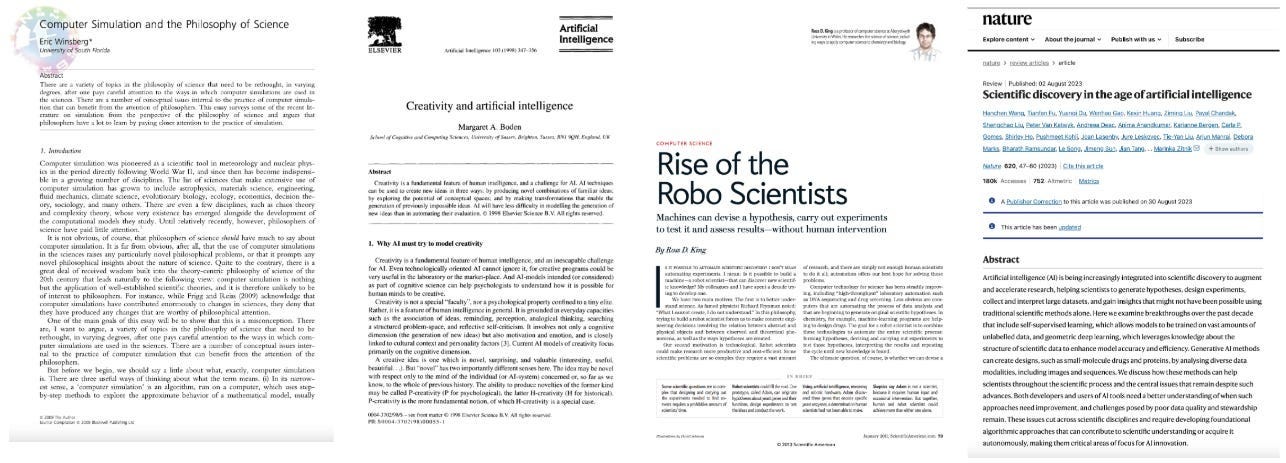

"That framing assumes science is just a method, a procedure for extracting truths from nature."
It also assumes science is not deeply dependent on the ability to experience and observe the world. And sure, eventually AI will be given senses in the form cameras and sensors, but is that enough?
Could a robot look an an apple falling from a tree and think, why is this apple falling and not going up?
Yes, Newton already discovered that but I have always felt deeply that science is not so much about all the available information (AIs bread and butter) it is about observing and and experiencing the world, then asking questions.
Feels more like the weapoization of science. The practice requires curiosity? Whose?